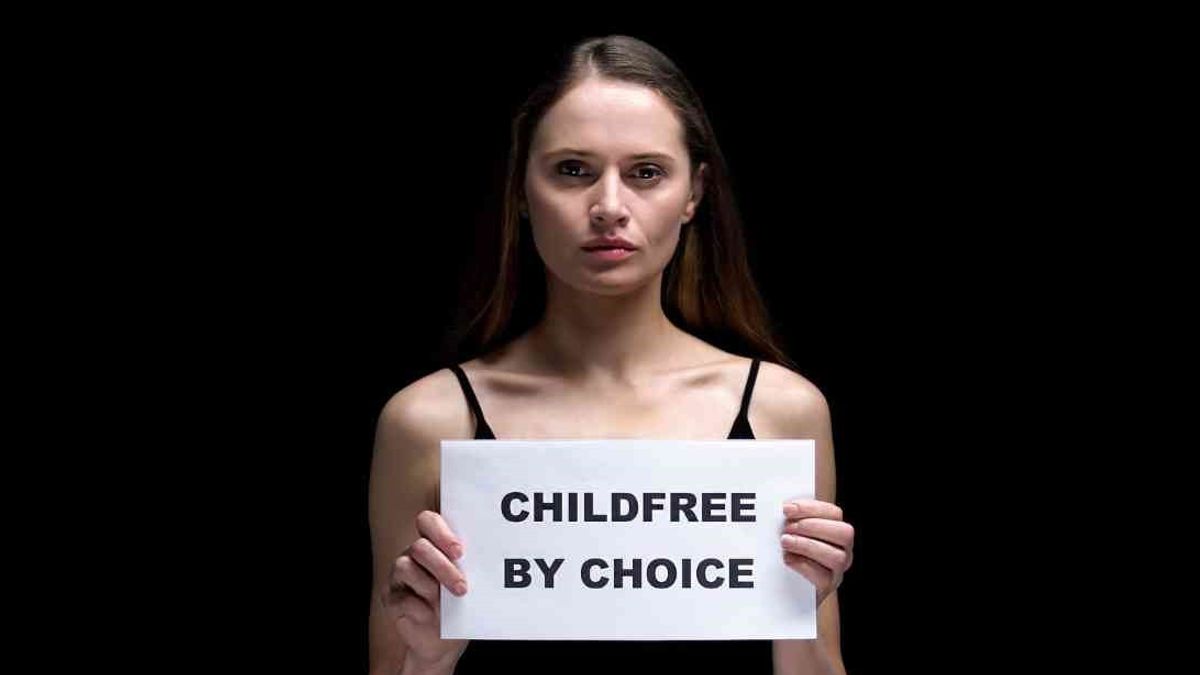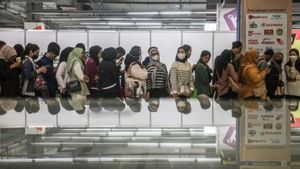JAKARTA The number of women in Indonesia who choose not to have children or childfree has experienced an increase in the last four years. According to the Central Statistics Agency (BPS), childfree phenomena do not only occur among women with higher education backgrounds.
BPS recently released a report entitled 'Searching Childfree Traces in Indonesia' and it is known that the number of women who choose not to have offspring has increased in the past four years, although the number had dropped during the COVID-19 pandemic.
According to the annual report, the prevalence of women in Indonesia who choose childfree is 8.2 percent or equivalent to 71,000 women. The report released by BPS uses National Socio-Economic Survey (SUSENAS) data on women aged 15-49 years who have been married but have never given birth, and do not use contraception.
Deputy Minister of Women's Empowerment and Child Protection Veronica Tan revealed that this childfree phenomenon occurs because many people have started to educate about parenting.
Veronica said, women who have education feel a need for great responsibility in raising children. If they can't, they will feel guilty.
"That's why I said for women who are educated they understand that children become a burden if we don't give the best with quality," said the woman who is called Vero.
"Finally they chose 'I just can't give the quality well, why do I have children'," he added.
Young influencer Gita Savitri has been bombarded with blasphemy by netizens because she openly adheres to childfree or does not want to have offspring. In the midst of the blasphemy of netizens, Gitsav, as he is called, revealed a number of reasons behind his decision not to have his own children.
Starting from the difficulty of being a mother to claims of gender equality which he considers just nonsense when he has children.
Gw SADAR it is true that taking care of the child's contract is LIFE. That's why I don't want to," wrote Gitsav on his Instastory.
Despite reaping pros and cons, in fact, the prevalence of women who choose to be childfree in Indonesia tends to increase from year to year. In 2019, for example, this prevalence only 7 percent then fell to 6.3 percent a year later or during COVID-19. However, this figure continues to rise to 6.5 percent and 8.2 percent respectively in 2021 and 2022. BPS predicts this figure will be even higher this year.
Today, women who choose childfree to be identified with women who are highly educated, at least at the S1 level and above. The decision to pursue education and career is said to be the reason women prefer not to have children.
However, the BPS data that was recently released recently gave rise to other facts. The decision to live childfree in Indonesia is actually higher in percentages for women with lower high school education.
The 2022 SUSENAS data also records that about 57 percent of women who choose child-free turn out to be inactive in economic activities or not working. Meanwhile, childfree women who work are engaged in the trade sector. This data reinforces the assumption that economic difficulties are the main factors for a person not to have children.
However, BPS analyzes other possible factors that play a role. "However, the homosexual lifestyle may also be a hidden reason," the report reads.
Clinical and forensic psychologist Kasandra Putranto agrees with these factors. He said that economic factors play a very important role that affects women's decisions in Indonesia to choose childfree life.
"Women who are experiencing economic difficulties may feel unable to raise children, so they choose to live without children as a solution," Kasandra told VOI.
In addition, perceptions about family also affect. Kasandra said, changes in the view of family and gender roles can affect the decision not to have children. Many women now see that they do not need to have children to feel complete or happy.
SEE ALSO:
Women who want independence and freedom in life also tend to choose not to have children. For them, having children is considered to be able to limit their freedom to explore life and pursue personal interests.
Social and cultural environments also affect this decision. In some communities, there is an increase in acceptance of childfree choices, which makes women feel more comfortable making these decisions, "explained Kasandra.
The decision not to have children has both positive and negative impacts on a family. Financial independence, having free time and energy for oneself, as well as good mental health opportunities are said to be among the positive impacts for families who adhere to childfree.
Couples who choose not to have children often have more financial freedom. They can allocate resources for investment, travel, or self-development," said Kasandra.
Some studies have also shown that childfree couples can experience lower stress levels, as they do not face the challenges and pressures that come with parenting, "he added.
However, childfree decisions are also accompanied by negative impacts such as facing stigma in society that thinks having children is a norm. In addition, some childfree couples are concerned about who will take care of them as they age, because they don't have children to support them.
"Some couples may feel lost in emotional connections that often come with parenting and deep sharing experiences," he concluded
The English, Chinese, Japanese, Arabic, and French versions are automatically generated by the AI. So there may still be inaccuracies in translating, please always see Indonesian as our main language. (system supported by DigitalSiber.id)
















